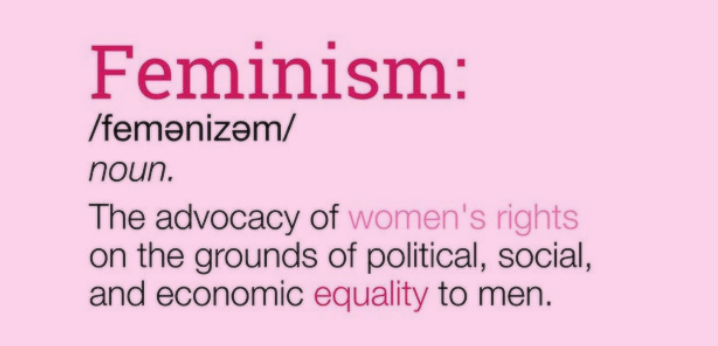Why ‘feminism’ was the word of the year

On December 12, Merriam-Webster declared that the word of 2017 was “feminism.” The decision was based not only on the overall frequency with which the word was searched on Merriam-Webster’s website, but particularly on spikes in searches related to a number of specific events throughout the year. Merriam-Webster’s choice therefore highlights not only our culture’s struggle to define the word “feminism” itself, but the way in which the movement the word represents played out in the spheres of politics and entertainment last year.
2017 will likely be remembered by feminists first and foremost for the Women’s March: the largest single-day protest in U.S. history. The organizers of the march, which was sparked by Trump’s inauguration, stated that their mission was to “create a society in which women — including Black women, Native women, poor women, immigrant women, disabled women, Muslim women, lesbian queer and trans women — are free and able to care for and nurture their families, however they are formed, in safe and healthy environments free from structural impediments.”
Soon after this success, however, the term “feminism” was associated again with connotations of less-enlightened years past: Kellyanne Conway, who was the first woman to run a successful United States presidential campaign, stated that she does not consider herself a feminist because she associates the term with being “anti-male or pro-abortion.” Of course, Merriam-Webster defines feminism as “the theory of the political, economic, and social equality of the sexes,” not hating men, but Conway didn’t get the message. In addition to her problematic understanding of feminism, Conway is an interesting threat to the feminist movement: While she helped Trump, a man accused of sexually assaulting multiple women, win over the first female major-party presidential candidate in United States history, Conway’s success is still a significant accomplishment in the male-dominated world of politics.
Ultimately, however, the term was again associated with a moment of great progress: Searches for the word spiked again around October, when the #MeToo movement took off. Catalyzed by allegations of sexual harassment against Hollywood producer Harvey Weinstein, more than 500,000 tweets and 12 million Facebook posts containing personal stories of harassment and abuse were shared in justv24 hours. The hashtag continued to put a spotlight on the ways thousands of women had silently suffered after facing harassment and abuse, underscoring both the stigma and omnipresence of harassment. While the movement may have started based on claims against figures in the entertainment industry, accusations quickly spread to the world of politics, media, tech, and beyond. Now a long list of public figures face allegations.
Of course, it’s important to note that the majority of the most popularized #MeToo allegations last year were made by rich and powerful women. The voices of vulnerable members of nonwhite, poor, or otherwise marginalized communities were largely left out of the conversation. And though not reflected in Merriam-Webster’s decision, perhaps this last point underscores what the feminist movement needs to work on most in 2018: making sure the term “intersectional” is searched for along with “feminist.”
While 2017 illuminated women’s immense power, the work isn’t done yet. The Women’s March wasn’t just a one-time show of support: A new round of marches are scheduled to take place on January 20, 2018 in cities across the country. The United States may have lost its chance to have a female president in 2017, but women also proved that they can do incredible things when they join forces to challenge systemic oppression — and they’re just getting started, as the first few days of 2018 saw the launch of #TimesUp: a movement to counter sexual harassment in all industries through legal recourse. As women continue to march forward into 2018, therefore, hopefully the word “feminism” will become even more associated with unity, support, and solidarity, and the movement it represents even closer to achieving political, economic, and social equality.
More articles by Category: Feminism
More articles by Tag: Activism and advocacy


























